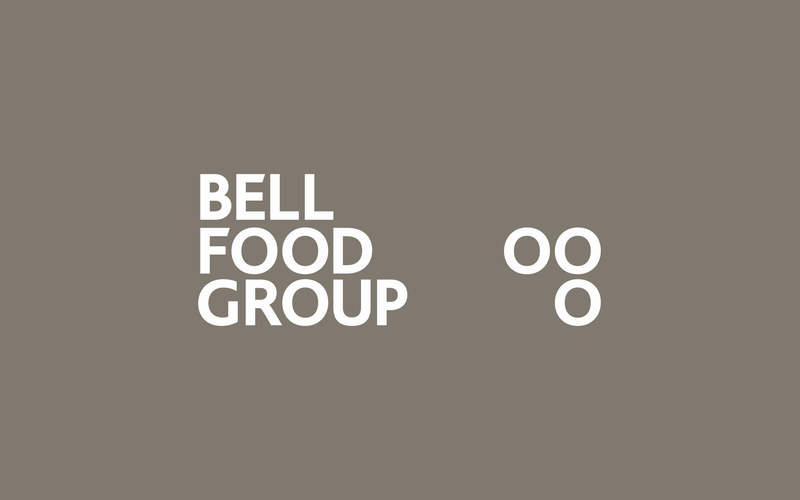Corporate governance
Corporate governance at the Bell Food Group Ltd. encompasses all the binding principles and rules that relate to the company’s management, control and organisation.
The Bell Food Group Ltd is listed on Switzerland’s SIX stock exchange and follows the Swiss Code of Best Practice for Corporate Governance of economiesuisse and complies with the SIX Swiss Exchange Directive on Information relating to Corporate Governance (DCG). The corporate governance rules and regulations of the Bell Food Group Ltd are based on Swiss law, the Articles of Association and the by-laws. The Board of Directors reviews the Articles of Association and by-laws at regular intervals and adjusts them in line with changed circumstances.
Information policy
Every year in February, Bell Food Group Ltd publishes an annual report on the results for the previous year. In August, it publishes an interim report on the results for the first half of the current year. Both reports provide information on the business operations and results of the Bell Food Group. Current developments are announced in media releases and notices published on the company's website.
Quicklinks
Board of Directors
The Board of Directors of Bell Food Group Ltd. currently consists of seven members who are elected for a period of one year at the annual general meeting.Management team
The Group Executive Board of the Bell Food Group consists of the CEO, the CFO and the business area Heads of Bell International and Convenience.Group structure
Bell Food Group Ltd is the parent company of the Bell Food Group and has its registered office in Basel in Switzerland.
Important dates
You can find all the relevant publication data and information on Bell Food Group events at a glance in our agenda.
Capital structure
Share capital
The company's share capital is fully paid up and equates to CHF 3,142,856. It is divided into 6,285,712 registered shares with a nominal value of CHF 0.50 each.
Additional share information can be found on pages 7, 47, 48, 70 and 94 of the 2023 annual report.
Authorised and conditional share capital
There is no conditional or authorised share capital.
Changes in capital
There were no changes in capital in the past three reporting years.
Shares, participation and dividend-right certificates
All registered shares of Bell Food Group Ltd. have a nominal value of CHF 0.50 each. Each share has one vote. However, shareholders can only exercise their voting rights if they are entered in the share register of Bell Food Group Ltd with voting rights. All registered shares are entitled to a dividend, except the treasury shares held by the company. Shareholders are not entitled to have certificates for registered shares printed out and delivered.
Bell Food Group Ltd has no outstanding participation certificates or dividend-right certificates.
Restriction of transferability and nominee entries
The transfer of registered shares as property or usufruct requires the permission of the Board of Directors. The Board of Directors may delegate all or some of its powers in this regard. The Board of Directors can refuse to register a buyer as a shareholder if the buyer does not expressly confirm that they have acquired the shares in their own name and on their own behalf, or if the entry of a buyer in the share register would lead to a natural person or legal entity directly or indirectly holding more than 5 percent of the share capital.
Convertible bonds, bonds and options
Bell Food Group Ltd has no outstanding convertible bonds or options. Information about the outstanding bonds is provided on page 83 of the 2021 annual report.
Do you have any further questions?
If you have any questions, please contact us:

Davide Elia
Head of Corporate Marketing / Communication
+41 58 326 3030 media@bellfoodgroup.com
Internal organisation and areas of responsibility
The Board of Directors of Bell Food Group Ltd defines the corporate strategy, issues the required instructions and oversees all the activities of the Bell Food Group, while the Group Executive Board is responsible for business operations. The Board of Directors reviews business planning, in particular the annual, multi-year and investment plans as well as the corporate objectives. The Board also identifies opportunities and risks and initiates any measures that are required. The areas of responsibility of the Board of Directors and the Group Executive Board are set forth in detail in the by-laws.
In addition to its non-transferable responsibilities and powers, the Board of Directors decides on mergers, litigation and contracts of special importance, capital investments in excess of CHF 5 million, and acquisitions and sales of property and companies. The Board determines the Bell Food Groupʼs corporate structure and is responsible for hiring, discharging and overseeing company managers and executives. It adopts the corporate policy and associated objectives and strategies and monitors their implementation. The Board also decides about the acceptance of board member mandates outside of the Bell Food Group by members of the Group Executive Board as well as the granting of loans, surety and guarantees to third parties from CHF 1 million and derivative transactions from CHF 10 million.
The Board of Directors usually meets seven times a year, every second month. Special meetings to discuss strategic transactions and other transactions that might have a considerable impact are held as and when needed. The meetings are regularly attended by the CEO and the CFO. The heads of the business areas Bell International and Convenience and other members of management are invited to attend discussions on specific topics as needed. No external advisors were engaged in the reporting year.
In 2020, the Board of Directors held six ordinary meetings and passed five resolutions by circular letter. Because of the coronavirus pandemic, one ordinary meeting was held via video conference and the constitutive meeting was conducted in writing. The ordinary meetings lasted 8 hours on average in the reporting year. The attendance rate was 100 percent.
In addition to the usual day-to-day business, the Board of Directors concentrated on the following subjects and projects in the reporting year:
- Impact and effects of the coronavirus pandemic; in-depth discussion of earning trends, in particular in the convenience and food service segments.
- Business development and further expansion of Eisberg Austria’s Marchtrenk (AT) location and commissioning of Hilcona’s location in Bad Wünnenberg (DE).
- Investment programme at Hilcona’s location in Schaan (LI) and Bell’s locations in Switzerland; approval of the budget for Bell Switzerland’s construction projects in Oensingen (CH).
- Second investment during the series B financing round in the Dutch start-up Mosa Meat, which specialises in cultured meat.
- Various investments in third-party companies by the business area Convenience.
- Asset deals by the business area Bell International in Saint-André (FR), Perbál (HU) and in Recogne and Zellik (BE).
- Conclusion of collective labour agreements for all locations of the Bell Food Group in Switzerland. Adoption of a new IT strategy for the Bell Food Group.
- First-time publication of a comprehensive sustainability report in compliance with an internationally recognised standard.
The Board of Directors undergoes a self-evaluation every two years, during which the individual Board members have to complete questionnaires about the strategy, culture, competencies, organisational structure and governance. The last self-evaluation took place in December 2020 and confirmed the Boardʼs functionality.
Information channels and control instruments of the Group Executive Board
The CEO and CFO regularly report about the course of business to the Board of Directors. The Chair of the Board of Directors is in close contact with the Group Executive Board and usually meets with the CEO once a month.
The CFO submits a management report (MIS) to the Board every month including a consolidated and a division income statement, key indicators and analyses. Financial reporting is a permanent component of Board meetings. Deviations are discussed and the measures that may be required are implemented.
Internal control system
The Bell Food Group operates a comprehensive internal control system (ICS), based on the internationally recognised COSO framework (www.coso.org), that is an integral component of quality assurance (QA). This was restructured in 2018 and implemented step by step at all units of the Bell Food Group. Controls focus even more sharply on asset protection and financial reporting. Institutionalised assessments measure the quality of the internal control system. Every year, the results of these assessments are compiled in a report and binding measures are defined for areas where potential for improvement has been identified.
Internal audit
In addition to the statutory auditors, internal auditing monitors compliance with guidelines and regulations as an independent entity on behalf of the Board of Directors and reviews the expedience of control instruments and the organisational structure and procedures as well as the effectiveness of the internal control system. It monitors the development of new business processes and modifications to existing business processes in a supervisory or advisory function and supports the Group Executive Board in the achievement of its objectives by making recommendations for improvements to business processes. Internal audit pursues a risk-oriented approach to auditing. Findings are documented and communicated to the Chairman of the Board of Directors. The implementation of measures is monitored.
Internal audit coordinates its auditing activities and maintains a close exchange of information with the statutory auditors.
Statutory auditors
Auditors
KPMG AG, Basel; since 2019
Auditor in charge
Jürg Meisterhans, lead auditor since 2020
At the recommendation of the Board of Directors, the auditors are elected by the Annual General Meeting every year. Re-election is possible.
The Board of Directors oversees the activities of the external auditors. The auditors brief the Chairman of the Board of Directors on the results of their audit three times every year. They also report to all members of the Board once every year.
The performance of the auditors is assessed by the Chairman of the Board of Directors, the CEO and the CFO on the basis of comprehensive assessment criteria. The focus falls on the audit team's technical competence, assertiveness, independence and interaction with our internal units. Other external factors also affect the assessment. The auditors are elected by the Annual General Meeting every year.
The activities of the statutory auditors comprise their legal and statutory obligations, including an evaluation of the existence of the internal control system (ICS).
Compliance
Bell Food Group Ltd is committed to complete integrity and compliance with the laws as a central tenet of its corporate culture. Management does not permit corruption or breaches of competition laws. A central compliance system is in place for the whole Group designed to prevent, identify and react to compliance breaches. The focus falls on antitrust law and the Bell Food Group's preventive measures in this area. Employees at all relevant levels are regularly trained in order to improve their understanding of the issue of compliance. The aim is to prevent potential misconduct in advance by raising awareness of and clarifying this subject. The issue of integrity is constantly highlighted as part of an ongoing dialogue.
The Bell Food Group has its own Code of Conduct. This framework condenses many existing guidelines and describes the rules that are binding for the company and all its employees in their dealings with one another as well as with their business partners.
Data protection is an element of compliance and this area was restructured in terms of content and personnel in 2018 in line with changed statutory framework conditions in the European Union. Data protection guidelines were adopted, a white paper was drawn up with standards, organisational charts, process workflows and recommendations and intensive training courses were held to raise awareness of the topic. The data protection guidelines and software tools were introduced and implemented throughout the Group. The Group companies carried out self-audits and Group-wide stress tests in preparation for information requests under the EU's General Data Protection Regulation.
Do you have any further questions?
If you have any questions, please contact us:

Michael Gloor
Chief Compliance Officer / Human Rights Commissioner
+41 58 326 2754 info-compliance@bellfoodgroup.com
Whistleblowing Reporting Office of the Bell Food Group
The Bell Food Group as a company and all our employees are bound by the law, regulations and internal policies. In order to preserve our integrity, compliance with these rules may in no way be compromised. Ethical and moral values are the binding foundations for our employees, but also for our business partners.
If you suspect any violation of the law, unethical behaviour or violations of our Code of Conduct, the Whistleblowing Reporting Office is at your disposal. Our employees, customers, suppliers and business partners can use the Office to report suspected or actual violations. Such violations include, for example:
- fraud, theft, embezzlement
- bribery/corruption
- antitrust law violations
- violation of the data protection or IT security directives
- product safety
- violations of environmental protection requirements
- conflicts of interest
- sexual harassment, discrimination, breaches of personal integrity
Incoming reports will be processed in accordance with a standardised procedure. All information received will be treated as strictly confidential, reports can be submitted anonymously if desired and anonymity will also in any case be guaranteed in further processing of such reports.
The safest way to submit a report is to open the following address in the browser of your personal computer: https://www.bellfoodgroup.com/whistle-blow/
Or you can go directly to the reporting portal via the following link:
Risk management
The Bell Food Group has applied structured risk management since 2009. As a food manufacturing company, the risk situation can be described as stable overall. As part of the risk management process, the Board of Directors, Group Executive Board and Executive Boards of the country organisations assess the major risks every year. The Bell Food Group generally defines risk as possible events or actions that could lead to a deviation from the defined objectives or strategy implementation. Positive deviations are seen as opportunities and negative deviations are deemed to be risks. Opportunities are integrated into the strategy process, while negative deviations are analysed during the risk management process. Risks are assessed for probability of occurrence and quantitative impact in the event they occur.
A full survey of the possible risks is carried out every three years. The risks that are relevant for the Bell Food Group are identified and measures are formulated if possible to reduce the probability of occurrence and/or the impact of potential risks. Every measure is given a responsible owner. In the in-between years, the Board of Directors and Group Executive Board monitor the status of the measures and carry out current assessments. As part of the risk management process of the Bell Food Group, risks that could potentially cause a loss of more than a specified amount at EBIT level within three years are actively managed. The relevant level of loss for these major risks is CHF 5 million for the Bell Switzerland division and CHF 1 million for the other divisions. Where possible, safeguards and measures are implemented to protect the company against risks that cannot be influenced or that can only be influenced to a limited extent.
In 2020, a new risk assessment was performed at Eisberg and risk management controlling was carried out at Bell Switzerland, Bell International, Hügli and Hilcona. Management has identified a sudden increase in raw material prices, shifts in agricultural policies and changed consumer needs as major risks.
The financial market risks are limited to foreign currency exposure, in particular in the Eurozone.
Internal audit carried out general health checks to identify the operational risks associated with new acquisitions, and Management defined and implemented the required measures.
More information about risk assessment is provided on page 37 f the annual report 2020.
